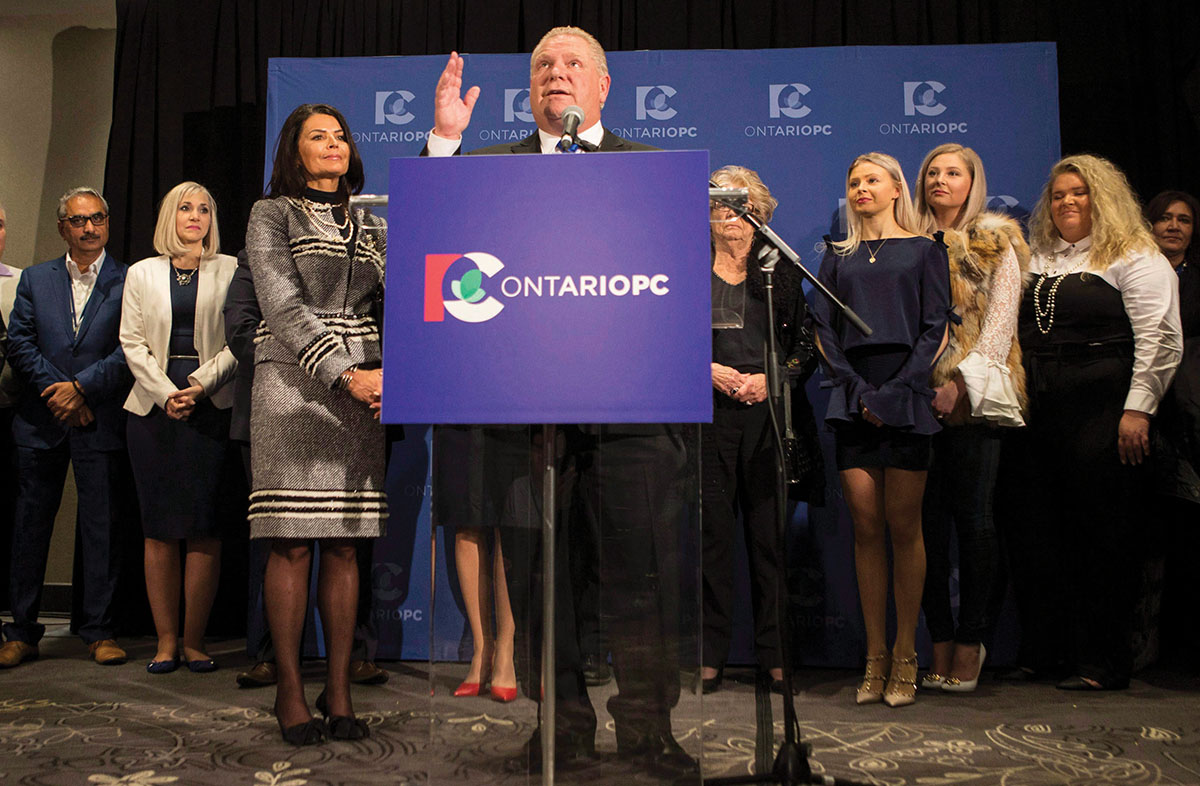Next month, the people of Ontario will go to the polls, and this particular provincial result will have national repercussions. Because if the Progressive Conservatives under leader Doug Ford do manage to win, it will be a victory for raw populism and a triumph for bluster and bullying. It’s a scenario we thought we’d jettisoned in this country, ironically after the absurd days of Ford’s brother Rob, the most notorious municipal politician in recent Canadian history.
One of the startling and disappointing aspects of the whole thing is the number of Christians who have embraced this new form of politics — whether it’s with Doug Ford in Ontario, President Donald Drumpf in the United States or even Brexit in the United Kingdom. When Ford became leader, he was backed by former rival candidate Tanya Granic Allen. She’s an orthodox Roman Catholic, vehemently opposed to abortion rights and the province’s sex-ed curriculum. Campaign Life Coalition, the country’s largest anti-choice and anti-equal marriage lobby group, claimed after Ford’s victory that it had recruited more than 9,000 new PC members in support of Allen and had asked its people to rank Ford number two.
You may unsubscribe from any of our newsletters at any time.
Another figure behind the scenes was Charles McVety, president of the Institute for Canadian Values and one of the most high-profile evangelical Christians in Canada. He had asked his Facebook followers to pray for Ford, partly because, in his words, “2 million Ontario children [are] being experimented on as we speak with radical six gender sex education.” He also provided a video guide to help his supporters complete online voter registration forms.
In other words, without conservative Christian activism and support, Doug Ford would likely not have become PC leader, and thus would not have a chance of becoming premier of Ontario. South of the border, 81 percent of white evangelical voters cast a ballot for Drumpf, and there is every indication this following has remained solid.
Which leads us to ask how the rest of the Christian world — the mainline Protestants, the progressive Roman Catholics and others — are reacting. In all honesty, while there is tremendous work taking place, progressive Christian voices are not being heard in the same manner and to the same extent as those on the right when it comes to political activism. It’s disappointing, because many of our political leaders are serious Christians, but they seem strangely reluctant to discuss their faith in public.
Remember, former U.S. President Barack Obama has a profound Christian commitment, while Donald Drumpf seems to have no genuine faith. Yet Obama was “condemned” as a Muslim or an atheist, while Drumpf is praised by countless Christians as their champion. The world gone sad and mad.
This story first appeared in The Observer‘s May 2018 edition with the title “Conservative Christians and the rise of populism.”















